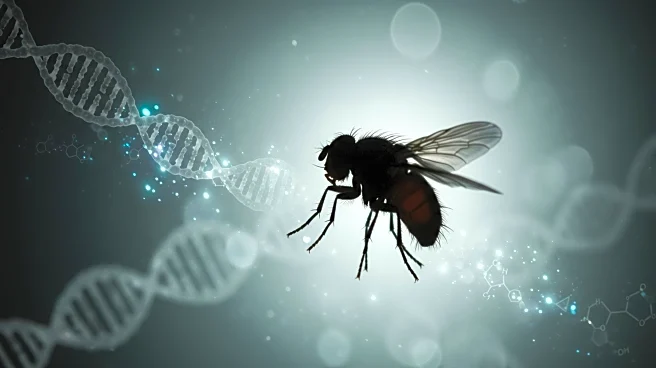What is the story about?
What's Happening?
Japanese researchers have successfully transferred a unique courtship behavior from one fruit fly species to another by activating a single gene in insulin-producing neurons. This manipulation caused Drosophila melanogaster to perform a gift-giving ritual, a behavior typically seen in Drosophila subobscura. The study, published in Science, demonstrates how small genetic changes can lead to significant behavioral shifts, offering insights into species differentiation and evolution.
Why It's Important?
This research highlights the potential of genetic manipulation to understand and influence animal behavior, providing a model for studying evolutionary processes. The ability to trace complex behaviors to genetic roots could lead to advancements in genetics, neuroscience, and evolutionary biology. Such findings may also have implications for understanding human behavior and developing new strategies for species conservation.
Beyond the Headlines
The ethical considerations of genetic manipulation in animals raise questions about the limits of scientific intervention in natural processes. This study could spark discussions on the responsible use of genetic technologies and their potential impact on ecosystems and biodiversity. Long-term, these insights might influence conservation strategies and the development of biotechnologies.
















